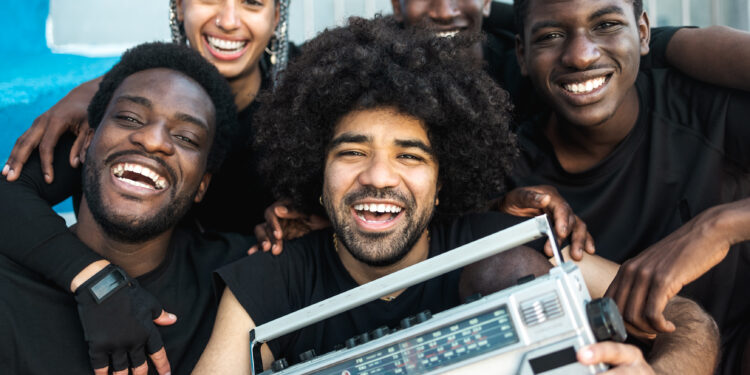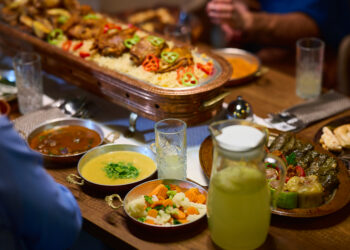“Community Spotlight: Indo-Caribbean Organisations Making Waves in the UK” shines a light on the vibrant, ever-evolving cultural network connecting Indo-Caribbean people across Britain. It’s a story of food, festivals, fellowship, and the fierce pride of a community whose roots stretch from India to the Caribbean, and now into the UK’s multicultural heart.
Whether through soca-infused Diwali celebrations, chutney music nights, or youth mentoring schemes, Indo-Caribbean organisations have been quietly, and sometimes loudly, making a mark across British towns and cities. As the UK’s Indo-Caribbean population continues to grow and redefine identity in a modern diaspora context, these groups are proving that community spirit is as strong as a fresh batch of doubles on a Saturday morning.
A Legacy That Travels Across Oceans
To understand today’s Indo-Caribbean organisations in the UK, you have to trace the journeys that brought them here. The Indo-Caribbean story began over 180 years ago, when Indian indentured labourers travelled to Caribbean colonies such as Trinidad, Guyana, Suriname, and Jamaica. They carried with them not only their languages, spices, and spiritual traditions, but also a resilience that would define generations.
Fast-forward to the mid and late 20th century: many Indo-Caribbean families moved again, this time to Britain, seeking new opportunities and reuniting with relatives who had already settled in cities like London, Birmingham, and Leicester. These families brought their hybrid cultures with them: part-Indian, part-Caribbean, and unique.
Today, that legacy thrives through grassroots organisations that preserve the flavours, sounds, and values of Indo-Caribbean life.
London: A Hub of Cultural Fusion
Unsurprisingly, London leads the way in Indo-Caribbean community activity. In neighbourhoods like Wembley, Harrow, and Croydon, community groups host everything from chutney-soca fundraisers to Holi colour parties with a Caribbean twist.
The Indo-Caribbean Cultural Association (ICCA), based in North London, is one of the best-known examples. Founded in the early 2000s, the ICCA runs cultural workshops, dance classes, and heritage festivals that blend Trinidadian and Indian influences. One of their annual highlights is Fusion Phagwa, a joyous celebration of Holi featuring tassa drumming, Caribbean curry stalls, and, of course, an inevitable soca limbo competition.
Further south, the Trinbago UK Association continues to champion Caribbean unity, and its Indo-Caribbean members have been instrumental in ensuring traditional dishes like curry duck, dalpuri, and roti are always front and centre at events.
Birmingham & Leicester: The Midlands’ Cultural Pulse
Birmingham and Leicester have become Indo-Caribbean strongholds, particularly for those of Guyanese and Trinidadian heritage. With shared histories of migration, food, and faith, these communities have built networks that celebrate cross-generational identity.
The Midlands Indo-Caribbean Collective (MICC), based in Birmingham, is one such group. They host storytelling nights where elders share memories of “back home”, both the Caribbean and India, helping younger members appreciate the rich tapestry of their lineage. Their events are a blend of old-school Bollywood tunes, chutney classics, and the comforting smell of coconut bake wafting through community halls.
Meanwhile, Leicester’s Caribbean Indian Cultural Network (CICN) focuses on education and social support, offering workshops on everything from Caribbean Hindi phrases to Indo-Caribbean family history. Their annual “Roots & Rhythms” concert packs out the city’s community centre each summer, proving that Leicester knows how to mash up a dhol beat with calypso rhythm.
Faith, Food & Fellowship
Indo-Caribbean community groups often centre around the three Fs — faith, food, and fellowship. Hindu temples in places like Croydon and Ilford, for instance, have quietly expanded their programming to welcome Indo-Caribbean congregants who practise Sanatan Dharma in distinctly Caribbean ways, complete with tassa drums accompanying bhajans.
Shree Ram Mandir UK Indo-Caribbean Chapter, established in 2019, is a perfect example of how traditional Hindu worship is being reimagined with Caribbean influences. During Navratri or Diwali, you might hear chutney-soca renditions of devotional songs — joyful, energetic, and irresistibly danceable.
Food, of course, remains the ultimate connector. Charity cookouts organised by groups like TriniKitchen UK and Guyanese Family Network regularly raise funds for local causes. From pepper roti to cassava pone, these events remind everyone that Indo-Caribbean food isn’t just delicious — it’s an edible form of storytelling.
Festivals That Bring It All Together
No Indo-Caribbean community story is complete without a festival or five.
In the summer, you’ll find Indo-Caribbean floats and food stalls brightening up London’s Notting Hill Carnival, where tassa bands and soca-chutney performers now feature alongside the broader Caribbean contingent. The Leeds West Indian Carnival has also embraced its Indo-Caribbean participants, celebrating the cultural fusion that defines modern Caribbean identity.
Autumn brings Diwali on the Square, where groups like ICCA and MICC showcase Indo-Caribbean dance troupes performing to chutney-infused bhajans, the perfect blend of London energy and Caribbean spice.
And come winter, when the days are short and grey, Caribbean Christmas in Croydon brings warmth with sorrel, parang, and curry goat served alongside sweet roti. The event’s Indo-Caribbean performers always steal the show with their humour, rhythm, and perfectly timed tassa beats.
Representation in Media & Arts
Indo-Caribbean creatives in the UK are increasingly telling their stories through art, film, and performance, often supported by community organisations.
Groups like Cultural Mix UK and Diaspora Stories Collective fund short films exploring Indo-Caribbean life, from intergenerational dynamics to modern love stories set in British-Caribbean homes. Choreographers like Shivani Bissessar and musicians like Ravi Jagdeo are collaborating on projects that merge kathak with soca, sitar with steelpan — redefining what “fusion” truly means.
Even in theatre, Indo-Caribbean narratives are gaining ground. The play Roti & Rum, staged in Birmingham in recent years, explored identity and belonging with sharp wit and emotional depth. Supported by the CICN, it sold out three nights in a row, proving audiences are hungry for more than just curry and dance.
Bridging Communities Beyond Borders
What makes Indo-Caribbean organisations particularly special is their ability to bridge multiple cultural worlds: Indian, Caribbean, and British, with ease. They champion inclusion, pride, and adaptability in equal measure.
Through partnerships with broader South Asian and Caribbean associations, they’ve positioned themselves as connectors rather than outliers. You’ll often see Indo-Caribbean stalls at South Asian expos or Caribbean heritage weeks, showcasing that dual identity that’s both spicy and soulful.
These collaborations not only preserve cultural heritage but also promote mutual understanding — something Britain’s diverse landscape sorely needs.
Keeping the Beat Going!
In the end, it all comes back to belonging — the warmth, the rhythm, the familiar laughter that ties generations together. These Indo-Caribbean organisations don’t just preserve a culture; they keep it alive, breathing and ever-evolving in a British breeze. It’s a reminder that heritage is not about holding still, but about moving forward with flavour, melody and mischief intact. And if you’ve enjoyed this journey through Britain’s vibrant Indo-Caribbean pulse, make sure to follow CurryBien — where the stories, the recipes, and the rhythm of the diaspora are always served hot, with just the right touch of spice.



















